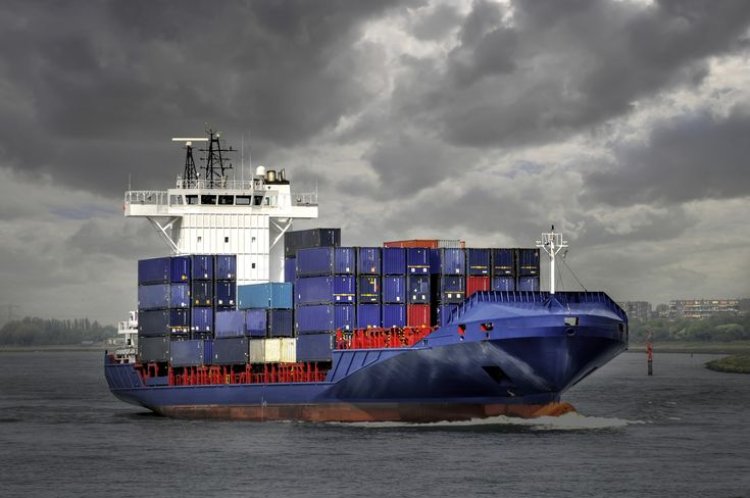How Can Fleet Logistics Support Improve Operations
Fleet logistics support is no longer a back-office function—it's a strategic driver of efficiency, cost savings, and real-time visibility.
Share this Post to earn Money ( Upto ₹100 per 1000 Views )

In today’s fast-paced supply chain and transportation sectors, fleet logistics support has become a pivotal element in streamlining operations and maximizing performance. As companies face increasing pressure to deliver goods faster, more efficiently, and at lower costs, fleet logistics support acts as the backbone that keeps the engine of commerce running smoothly.
So, how can fleet logistics support improve operations? Let’s dive into the powerful role it plays in creating smarter, faster, and more agile business processes.
What is Fleet Logistics Support?
Fleet logistics support encompasses the systems, processes, personnel, and technologies used to manage a fleet of vehicles and ensure that logistics activities—from dispatch to delivery—run seamlessly. This includes vehicle tracking, maintenance scheduling, route optimization, fuel management, compliance monitoring, and driver coordination.
Whether managing a fleet of delivery trucks, service vehicles, or long-haul transporters, robust logistics support ensures everything functions like a well-oiled machine.
1. Increased Efficiency through Real-Time Data
One of the greatest benefits of modern fleet logistics support is the ability to access and act on real-time data. GPS tracking, telematics, and fleet management software provide live updates on vehicle locations, driver behavior, delivery statuses, and traffic conditions.
This immediate visibility allows dispatchers to:
-
Re-route vehicles in case of traffic jams or road closures.
-
Quickly respond to delays or emergencies.
-
Balance workloads by reallocating deliveries.
The result? Faster turnaround times, fewer delays, and better service delivery.
2. Optimized Routing and Fuel Savings
With fuel prices often representing one of the highest operational expenses, optimizing routes is a game-changer. Fleet logistics tools analyze route data to determine the most fuel-efficient and time-saving paths for each delivery.
Fleet managers can:
-
Reduce unnecessary idling.
-
Avoid congested roads or construction zones.
-
Plan deliveries to minimize backtracking or inefficient detours.
Better routing leads to lower fuel consumption, reduced wear-and-tear on vehicles, and less environmental impact—a win-win across the board.
3. Preventative Maintenance and Reduced Downtime
Fleet logistics support doesn’t just manage deliveries—it also ensures your vehicles are running at peak condition. Using predictive maintenance schedules based on mileage, engine hours, or sensor alerts can prevent breakdowns before they occur.
By minimizing unexpected downtime:
-
Businesses avoid costly emergency repairs.
-
Drivers remain safe on the road.
-
Delivery schedules remain uninterrupted.
In essence, fleet logistics support keeps the wheels turning—literally and figuratively.
4. Enhanced Driver Performance and Safety
Driver behavior directly affects operational success. Through telematics, companies can monitor:
-
Speeding or harsh braking incidents.
-
Idle times.
-
Fuel usage and eco-driving scores.
This data not only identifies training needs but also boosts accountability and encourages safer driving practices. Improved driver behavior leads to:
-
Fewer accidents.
-
Lower insurance premiums.
-
Extended vehicle lifespan.
A safer, more reliable fleet means higher customer satisfaction and reduced liability.
5. Scalability and Flexibility in Operations
As businesses grow, so do logistical demands. Fleet logistics support enables organizations to scale up operations without losing control. Whether you’re adding new vehicles, entering new territories, or handling seasonal peaks, logistics software provides the adaptability to expand without compromising efficiency.
Dynamic scheduling, automated reporting, and centralized dashboards give managers the tools to handle growth intelligently.
6. Compliance and Documentation Made Easy
Regulatory compliance is non-negotiable in fleet operations. From hours-of-service (HOS) tracking to vehicle inspection records, logistics support systems automate these processes, reducing human error and ensuring audit readiness.
This minimizes the risk of fines, legal issues, or costly service disruptions—especially crucial in highly regulated industries like food, pharmaceuticals, or hazardous materials.
7. Cost Reduction and ROI Enhancement
When all the above benefits come together—fewer breakdowns, optimized fuel usage, improved driver efficiency—the result is significant cost savings. Fleet logistics support transforms operations from a cost center into a strategic advantage.
Additionally, analytics dashboards help managers identify trends, spot inefficiencies, and make data-driven decisions that improve ROI.
Final Thoughts: Logistics Support is the Unsung Hero of Fleet Operations
In a hyper-competitive business environment, small inefficiencies can lead to big losses. Fleet logistics support offers the visibility, control, and optimization needed to stay ahead of the curve. It’s not just a support function—it’s a strategic enabler of business growth.
Whether you're operating a fleet of five or five hundred vehicles, investing in fleet logistics support isn't a luxury—it's a necessity for modern, high-performing operations.














